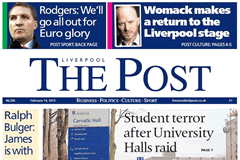I attended an event this week where Labour’s Shadow Business Minister Chuka Umunna talked about ‘the British Dream’.
He was describing how his view of entrepreneurs was of those people who wanted to work hard, get on and be their own boss. The British Dream exists but, in his opinion, unlike Americans, we are too reserved to talk about it too much.
True though this undoubtedly is, there are other differences between the UK and the States that we need to learn from if we are to create the enterprise culture or the ‘new generation’ of entrepreneurs that Chuka and other leading politicians from all party’s talk of.
Business failure is almost a necessity for someone who wants to go on to achieve success and is accepted as part of the entrepreneurial journey in America and is obviously an approach that we need to adopt and embrace.
The work that they have done in the States to encourage and support women to set up their own businesses is effective and innovative.
And the other big thing that America does so much better than us is celebrate success. And when they find a hero, the Yanks admire them; do what they can to support them; promote them; and on occasion ignore, or at least forgive, any behaviour that is not in keeping with their iconic status. Can you imagine a British Prime Minister enjoying the rehabilitation that Bill Clinton has enjoyed post Monica Lewinski for example?
There is much for us to learn from the American culture if the ‘British Dream’ is to translate into reality for more than the relatively few individuals in the North of England, who see starting a business, making a difference, making money and becoming an entrepreneur as a genuine route for them.







